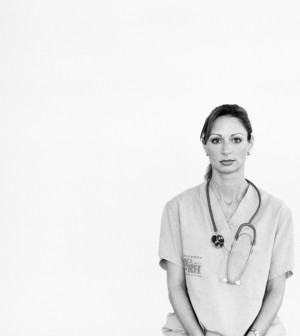- The Best Time of Day to Drink Bone Broth to Maximize Health Benefits
- 8 Ways to Increase Dopamine Naturally
- 7 Best Breads for Maintaining Stable Blood Sugar
- Gelatin vs. Collagen: Which is Best for Skin, Nails, and Joints?
- The Long-Term Effects of Daily Turmeric Supplements on Liver Health
- Could Your Grocery Store Meat Be Causing Recurring UTIs?
- Are You Making This Expensive Thermostat Error This Winter?
- Recognizing the Signs of Hypothyroidism
- 10 Strategies to Overcome Insomnia
- Could Artificial Sweeteners Be Aging the Brain Faster?
Health Highlights: April 23, 2014


Here are some of the latest health and medical news developments, compiled by the editors of HealthDay:
Artificial Retina Restores Vision
Four Americans have received an artificial retina since it was approved by the U.S. Food and Drug Administration last year, and a fifth is scheduled to receive the implant next month.
The device is meant to help people with retinitis pigmentosa, an inherited disease that causes progressive damage to light-sensitive cells in the eye’s retina.
The “bionic eye” system includes an array of electrodes implanted on the surface of the retina. The person wears glasses that contain a tiny video camera and transmitter. Images from the camera are converted into electrical pulses that are sent to the electrodes and stimulate the retina’s remaining healthy cells, the Associated Press reported.
Dozens of patients in Europe have undergone the artificial retina procedure in recent years. All four of the surgeries in the United States have been performed at the University of Michigan Kellogg Eye Center, but 11 other centers in the country are accepting patients for consultation.
To be considered for the artificial retina, patients must be 25 and older and have end-stage retinitis pigmentosa that has left them with little or no light perception in both eyes, the AP reported.
About 100,000 people in the U.S. have retinitis pigmentosa. Of those, about 10,000 could benefit from the artificial retina, according to Dr. Brian Mech, an executive with California-based Second Sight Medical Products Inc, which makes the device.
The artificial retina is a “game changer,” according to Dr. Thiran Jayasundera, one of two surgeons involved in a 4.5-hour procedure to implant the device in 55-year-old Roger Pontz of Reed City, Mich.
He was diagnosed with retinitis pigmentosa as a teen and had been almost completely blind for years. The bionic eye has restored enough of his vision to enable him to see his wife, grandson and cat, and to be able to walk through the house with ease.
“It’s awesome. It’s exciting — seeing something new every day,” Pontz told the AP.
——
Paper Money Carries Thousands of Types of Bacteria: Study
A study gives new meaning to the term “dirty money.”
Researchers found that dollar bills from a Manhattan bank carried 3,000 types of bacteria. Most were the kind found on people’s skin, while others were similar to those found in mouths and even in vaginas, ABC News reported.
While most of the bacteria detected on the dollar bills were associated with mild conditions such as acne, there were some antibiotic resistant types, including the superbug methicillin-resistant Staphylococcus aureus (MRSA), according to the researchers at the New York University’s Center for Genomics and Systems Biology.
They said their study suggests that paper money could be a way for bacteria to pass between people. For example, they found that bills analyzed in winter were more likely than those tested in summer to carry bacteria that can cause pneumonia, which suggests that money could play a role in its spread, ABC News reported.
The study authors said people shouldn’t be overly concerned about their findings.
“Microbes are so important, are very ubiquitous and they surround us all the time,” lead investigator Jane Carlton, director of genome sequencing at the Center for Genomics and Systems Biology, told ABC News.
“We did find certain microbes that we might be a little concerned about, but that doesn’t mean that people should be unduly concerned,” she said.
Copyright © 2026 HealthDay. All rights reserved.










